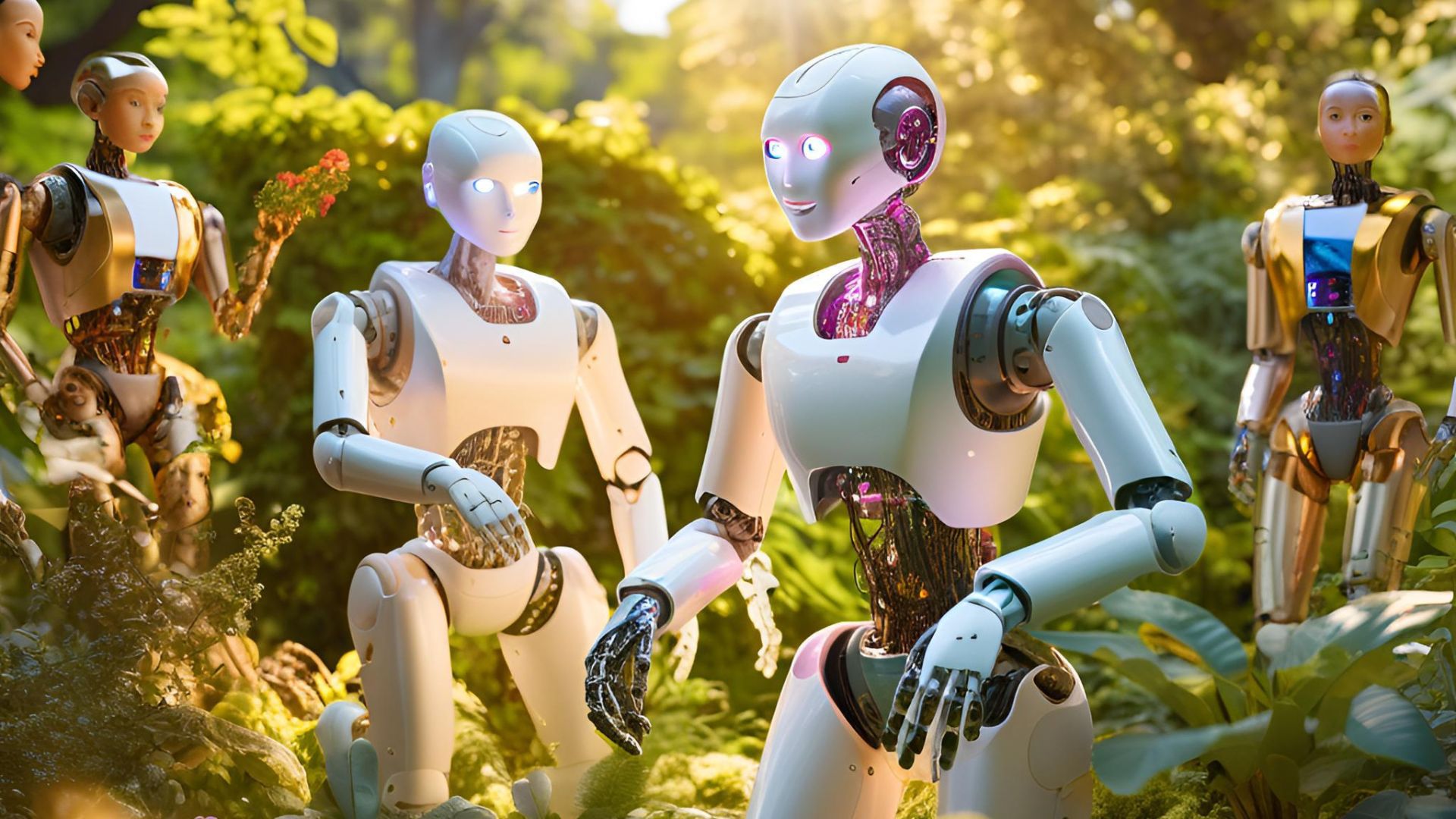In the World of AI - Embracing Passion, Skills, and Technology for a Human-Centered Tomorrow

To,
The Young Leaders of India,
The future is being shaped today for our tomorrow. As we stand on the precipice of a rapidly changing world, the opportunities ahead are immense and exciting. But all of us are unsure of what is to come ahead right? Is AI really going to disrupt the world? With these opportunities come new challenges that require us to adapt, evolve, and redefine what it means to live and work in an era dominated by technological innovation.
India, with its population of 1.4 billion people, is home to the largest youth population in the world, with nearly 50% of its population under the age of 25. This young, dynamic workforce represents a powerful force for innovation and growth. But how can we, the youth of India, thrive in a world that is constantly evolving and shifting towards machines? The answer lies in two simple yet powerful concepts: Swadharma (Ikigai, as we call it these days) and Skills development.
Swadharma (One’s own duty) and Ikigai (The Power of Passion and Purpose)
Ikigai, a Japanese concept meaning “a reason for being,” emphasizes the importance of finding something that resonates deeply with your passions, talents, and the world’s needs. It is more than just a job; it is your true calling, something that drives you to get out of bed each day and contribute to the world. Finding your Ikigai is not a luxury but a necessity in the world of tomorrow. It helps you focus your energy, work with purpose, and bring out your best self. And that eventually is our Swadharma, a Sanskrit concept meaning “honouring your own duty”, here, towards one beautiful life we are living now.
According to the World Economic Forum’s Future of Jobs 2025 report, AI and automation will continue to reshape the job market, replacing certain types of jobs with intelligent algorithms and robots. However, AI will not replace the very essence of being human – our values, our creativity, our emotional intelligence, and our ability to connect with others on a personal level. It is these attributes that will set you apart in a world where technology is king or maybe queen!
Let us go on a journey to identify our Swadharma in this article –
Building Market-Relevant Skills
Yes! The World Needs What You Have to Offer!
While passion fuels the journey, skills build the bridge to your future. You must cultivate both hard and soft skills, with a focus on those that are market-relevant and future-proof. As India’s GDP currently stands at around $3.7 trillion, it is expected to become the world’s third-largest economy by 2030, surpassing Japan and Germany. Does that we are going to be rich? Technically so, and also that our lifestyles would become better, there would be more scopes and opportunities for us – all people who are skilled, yes, we have to keep in mind that we are doing it keeping sustainability in mind. And, to meet this growing demand for skilled workers, it is crucial that you acquire skills that align with both technological advancements and human needs.

While hard skills such as coding, data analysis, and digital literacy will continue to be in demand, the importance of soft skills cannot be overstated. Skills like communication, empathy, problem-solving, and collaborative thinking will become the cornerstone of success in the next 10 to 15 years. According to WEF, 85 million jobs may be displaced by technology by 2025, but at the same time, 97 million new roles will emerge, many of which will require a balance of technical proficiency and human-centred attributes. Creative thinking, emotional intelligence, and the ability to collaborate across cultural and geographical boundaries will be in high demand. These are not skills that AI can replicate easily. AI can process data and analyze patterns, but it cannot understand the human condition or inspire change through compassion, creativity, or moral values.
Samjhe? So if you are god gifted with a talent build on it, and if you are someone who has a passion, to jo Dil Chahta hae- vo hi karo!
The Carbon Footprint of Technology
Have you ever thought about where the energy to store all the data we are generating comes from?
As we embrace new technologies, it’s equally important to recognize their environmental impact. Did you know? – Every device you use, every cloud you access, and every algorithm you interact with generates energy and contributes to carbon emissions. The digital world, while full of promise, has a dark side: its carbon footprint.
According to a report by the International Energy Agency (IEA), digital technologies, including AI and data centres, could account for as much as 20% of global electricity consumption by 2030. This is a growing concern, especially as the world faces the consequences of climate change. The World Economic Forum’s Future of Jobs 2025 report also emphasizes the need to adopt more sustainable practices as technology becomes more integrated into every aspect of our lives.
It’s crucial, therefore, that we embrace sustainable technology. As the next generation of innovators and leaders, you have the power to push for greener technologies and practices. Whether it’s advocating for renewable energy in tech development or choosing eco-friendly devices, every small action can make a difference.
Embracing Regional Language and Heritage
Matrubhasha is our Kal ki Asha!
In the rush to be part of the global race, it is easy to overlook the significance of our roots. As the world becomes more interconnected, it is essential not to lose touch with the language, culture, and heritage that define us. The rich diversity of India’s regional languages and traditions is not just a part of our identity; it is the key to a more harmonious world.
India has 22 officially recognized languages and over 1,600 dialects, which are rich with wisdom and tradition. These languages hold a treasure trove of cultural heritage that has shaped the way we live, think, and relate to the world. By embracing your regional languages, you keep alive the wisdom and traditions of your ancestors, while connecting with a vast community of people who share your history and culture. Whether it’s through literature, music, or the arts, regional languages hold the power to unite and inspire. In the era of globalization, celebrating our diversity becomes a strength, not a barrier.

Collaboration Over Competition
Saath se hoga Vikas!
One of the most valuable lessons of the 21st century is understanding that we are all in this together. The future will not be about competing against one another; it will be about collaboration. The problems facing our planet—climate change, poverty, inequality—require collective action. Working together, we can find innovative solutions that benefit all.
According to the United Nations, over 650 million people still live in extreme poverty and over 3 billion lack access to the internet. These issues cannot be solved by a single individual or nation; they require the collaborative efforts of people from all walks of life. Take inspiration from global movements such as UNICEF’s Generation Unlimited or India’s Swachh Bharat Abhiyan, where young people have come together to address societal issues. The power of collaboration can create lasting change and a more inclusive future for all.
Toh Suno!!!

So, to the youth of India, I urge you to take action today. Find your Ikigai, build skills that are both market-relevant and human-centric, and embrace technology with responsibility. Volunteer for causes that resonate with you, whether it’s in education, health, environment, or social justice. In the process, you’ll not only learn but also grow as entrepreneurs, leaders, and change-makers who will shape a better world for all.
India’s youth, with its tremendous potential, can play a pivotal role in shaping the $10 trillion economy that is expected to emerge by 2035. The world is waiting for you to step forward and lead. Remember, the race is not against anyone else—it’s against time. The future is waiting for you to lead it with compassion, creativity, and courage. Be mindful in this journey, ok?
As the World Economic Forum aptly states, “The youth of today are the leaders of tomorrow.” I say, “We are leaders of today.” If we take the initiative today, we only then get the confidence to lead in the future. Experience widens our perspectives. It’s time to embrace your power, develop the right skills, and make the world a more human, sustainable, and happier place.
Go out, explore, volunteer, learn, and most importantly, bring about the change you wish to see.
Our time is Now.
A report you should read: WEF_Future_of_Jobs_Report_2025.pdf
About the author:

Saloni Parikh is a Global Shaper with the Ahmedabad Hub – Global Shapers Community of the World Economic Forum. She has been working in the Education and Skill development sector since 2015, starting as an NSS Volunteer and then professionally since 2019 in various capacities with the Government of India as a Public Policy Professional. She is presently providing her services to the Government of Gujarat, Department of Labor, Skill Development and Employment through Ernst & Young as a Sr. Consultant.
Saloni loves interacting with children, youth, and young professionals and conducts programs on soft skill development. To know more about her work, Connect Karo! https://linktr.ee/saloniparikh
You can reach her through – LinkedIn: https://www.linkedin.com/in/parikhsaloni

